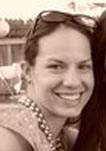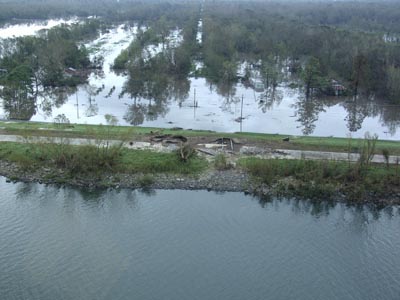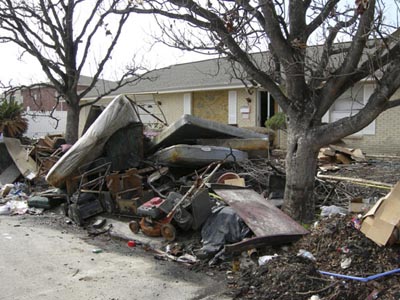
Sports
- The Outdoor Program helps people plan adventures.
- Adam Lake uses fencing to bring people together.
- Win or lose, the Pit Crew keeps Mac Court shaking for the Ducks.
- Tearing at jerseys and slamming into each other. It's women's rugby.
Changes
- A Taiwanese student finds adjusting to a foreign culture challenging.
- A close-up look at the ASUO president.
- A senior's abrupt transition to Eugene after Hurricane Katrina.
Arts
- A ballroom dance club president wears many hats and makes them too.
- Whether composing or jamming on his mandolin, Jesse Jones shares his love of music.
- Non-traditional African dance brings a new sense of community.
- The Student Fibers Guild proves that knitting isn't just for old ladies anymore.
- Halo Jones' music and art expresses his dark and light sides.
- A musician, student, activist and artist.
- For Ashley Maury, jewelry is more than decorative.
- A student TV show features news, sports, drama and comedy.
- A printmaking student goes beyond the studio and into the city.

Senior Stacie Gould describes her abrupt transition to Eugene after Hurricane Katrina
by Autumn Linde
“Eerie” was the word Stacie Gould used to capture her experience returning to her hometown of Braithwaite last December, a town just outside St. Bernard Parish in Louisiana.

Senior |
“There weren’t any signs of it being a familiar place. There were no location markers,” said Gould, 22, a transfer student from the University of New Orleans. “It’s hard to go walk somewhere where you’ve spent 20 years in one place and it is unrecognizable.”
Gould is just one of many displaced Louisiana residents who quickly had to decide where to go and what to do after Katrina destroyed any chance for normalcy.
With her home flooded and damaged by winds, her university closed until further notice, her hometown in chaos and damaged beyond recognition, Gould found her way to Eugene so that she could create a new routine and hope, continuing her senior year and keeping alive her plan to graduate in the spring of 2006.
“I’ve been through tropical storms, low-key hurricanes, but nothing of this caliber,” said Gould. “I’ve evacuated several times before. And we didn’t suspect this would happen until that Monday, when we realized it was worse than it had seemed.”
|
View a slideshow and hear Stacie describe her experience returning to St. Bernard Parish (Photos courtesy of Lori and Robert Gould) |
A recent National Oceanic and Atmospheric Administration article said that Hurricane Katrina “became the most destructive hurricane to strike the United States,” and “will no doubt stand out as the one storm to have had the greatest impact on millions of lives along the U.S. Gulf Coast.”
When Katrina moved from being a Category 2 to a Category 5 in the course of one night, Stacie, her mother and father evacuated their home near the Mississippi River to the town of Monroe in northern Louisiana where they shared a hotel room with their toy poodle, Gavin, and German shepherd, Nina. Thinking they would be away for only a few days, they each took a small duffel bag holding a few changes of clothes, important documents and a few items of sentimental value. They thought they wouldn’t need anything more than that.
A few days turned into three weeks. St. Bernard Parish was off-limits to its own residents who had built homes, planted flowers, shopped and raised families within its neighborhoods and along its streets.
“We couldn’t go to the house,” said Gould. “The town was under martial law, and they were not letting anyone in. It was unsanitary and uninhabitable.”

A broken levee causes flooding and severe water damage to neighboring homes and streets. A man drives a riding lawn mower across the top of the levee.(Photo courtesy of Lori and Robert Gould) |
She couldn’t go back to the way things were. She couldn’t wake up the next morning and be a college student who was approaching her senior year and looking forward to graduating.The University of New Orleans had been severely damaged by floodwaters and wind. Gould had to decide to stay or leave, and leaving meant leaving 20 years of a familiar place with its familiar faces.
Eager to finish her education, Gould decided to join her boyfriend, Dan, in northern California. Dan, a chef at a hotel in New Orleans, was attending a friend’s wedding in Salem during the storm.
Without much closure, Gould, with her duffel bag packed with only two pairs of shorts, one pair of blue jeans, three T-shirts, one pair of flip-flops and a few items of her mother’s, took a flight to California.
“We stayed with my boyfriend’s parents for about three weeks,” said Gould. “And I started looking at schools as soon as possible. The U of O came highly recommended, and when my boyfriend got offered a job and my application was accepted, we made the logical choice to move here.”
Gould came to the University under the student exchange program offered between public universities. Basically, this program allowed the university to waive out-of-state tuition, saving her the extra expense of being a nonresident.
|
“It was my first time in Oregon,” said Gould. “I didn’t know how people were in Oregon, didn’t know what the apartment was going to look like, where we were going to live, nor did I know how the campus looked.”
Gould arrived a few days before the start of fall term, while still thinking about her family and friends in Louisiana. This was her first trip leaving home, moving away from her family. While her parents would wait out the effects of Katrina and rebuild their life and home, Gould would build something new for herself.
“At times it’s difficult because I left on a whim,” she said. “I really didn’t get to say good-bye.”
Last December was the first time Gould had been back to visit her family since that whim brought her to Oregon. She described how driving through her hometown evoked tears and nausea. She wanted to see her family and get the rest of her belongings, at least what was left.
“The devastation was still pretty bad,” she said. “There were still sanitation crews cleaning up areas. If you went to Wal-Mart, you would have to stand in line for about one hour. If you wanted fast food, it was about a 35-45 minute wait with only a limited menu. And you could forget about going to any restaurants.”
Although Gould is attending the University of Oregon, she plans to transfer her credits to the University of New Orleans and walk with her graduating class in the spring with a degree in hotel and restaurant management. Gould only needs a few more business courses she can take at Oregon to apply toward her degree.
As well as being a full-time student, Gould is a student ambassador in the marketing office at the University’s Career Center. She helps to develop creative concepts to promote the center’s events.

After being checked by FEMA officials, each home is marked with the date of inspection, whether the house is salvageable and if and how many bodies were found.(Photo courtesy of Lori and Robert Gould) |
Although she will get her diploma in New Orleans, she calls Oregon her home and plans to return after graduation seeking a job as an events coordinator. The rest of her family will stay in Louisiana, the place they will always call their home.
“Everyone from the university made it easier,” she said. “They were very hospitable and sympathetic toward the situation. Everyone has been supportive in making me more aware of the resources on campus. I’ve even had professors open their homes to me and invite me over for holidays and dinners,” said Gould.
Although the university has proved to be supportive, it can never be that lively town offering fresh seafood she shared with her family and childhood friends.
“New Orleans is a lot slower of a pace,” said Gould. “It’s called the Big Easy because we are about good friends, good music, good food. We are a good-time type of people,” she said.
“I’ve noticed in myself that the things I used to care about have changed,” she said. “I value family and friends more, because you never know when that can be taken away from you. And, I also realized that I can be quite content living out of a duffel bag,” Gould said with a modest smile.
“None of us chose to have this happen to us,” said Gould. “So you just have to deal with it. I always wanted to travel around, and because this happened, I get to do that. And I get to share that with my family and friends. I guess I just needed a little push.”